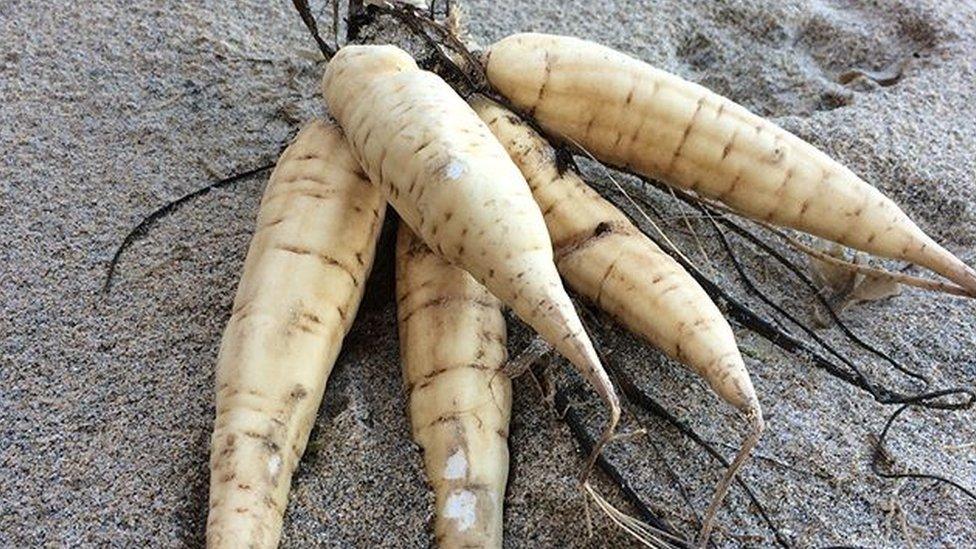Hemlock: Anger after poisonous plant found near Bucklesham school
- Published
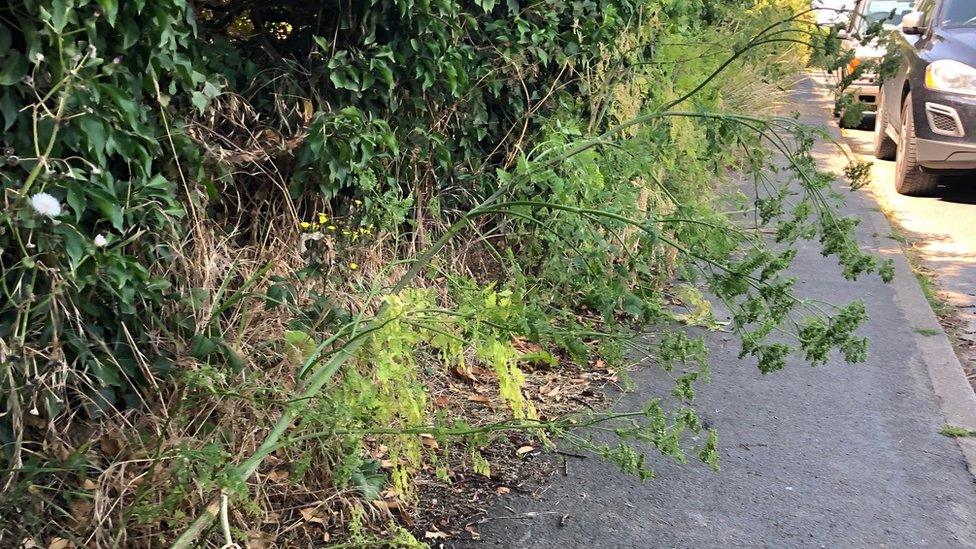
Hemlock, which can be fatal if ingested, was found growing along a path near a village school
A poisonous plant on an overgrown path close to a primary school has raised concerns about children's safety.
The head teacher of Bucklesham Primary School in Suffolk said pupils had to walk in the road to avoid the hemlock, which can be fatal if ingested.
A village parish councillor warned "children's lives are at stake" and called for the plant's urgent removal.
Suffolk County Council said Monday was the earliest it was able to clear the path because a road closure was needed.
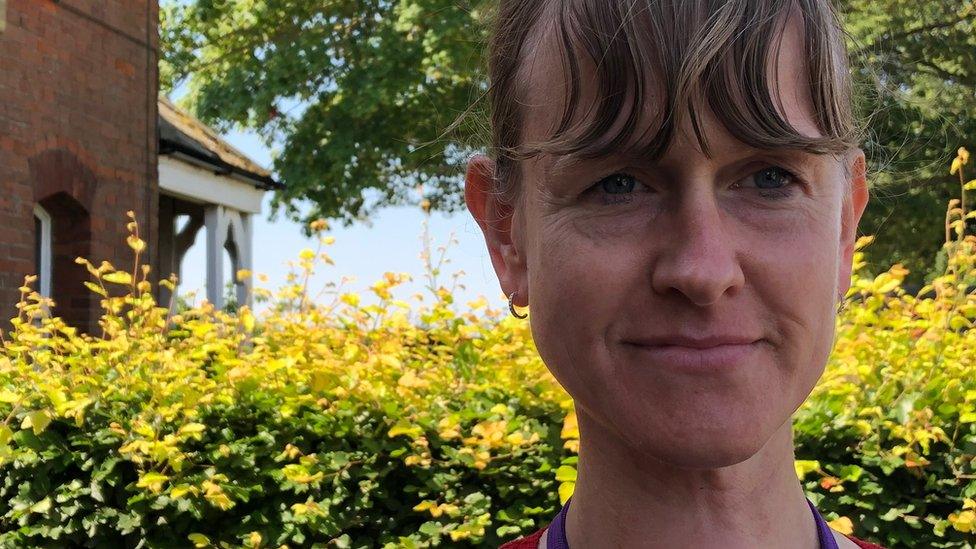
Head teacher Rachael Rudge has held special assemblies with pupils to warn them about the poisonous plant
The issue was first reported to the authority on 19 June and Bucklesham Parish Council chairman David Brinkley was concerned about the wait.
He said: "Don't put children's lives at stake. And if it's not good enough for your workmen to work on the path, it's certainly not good enough for children to walk in the road."
Head teacher Rachael Rudge was also concerned for her pupils' safety.
"To walk on the roads because the path isn't safe because of all the hemlock and vegetation overgrowing, they're being put in this really difficult and unsafe position," she said.
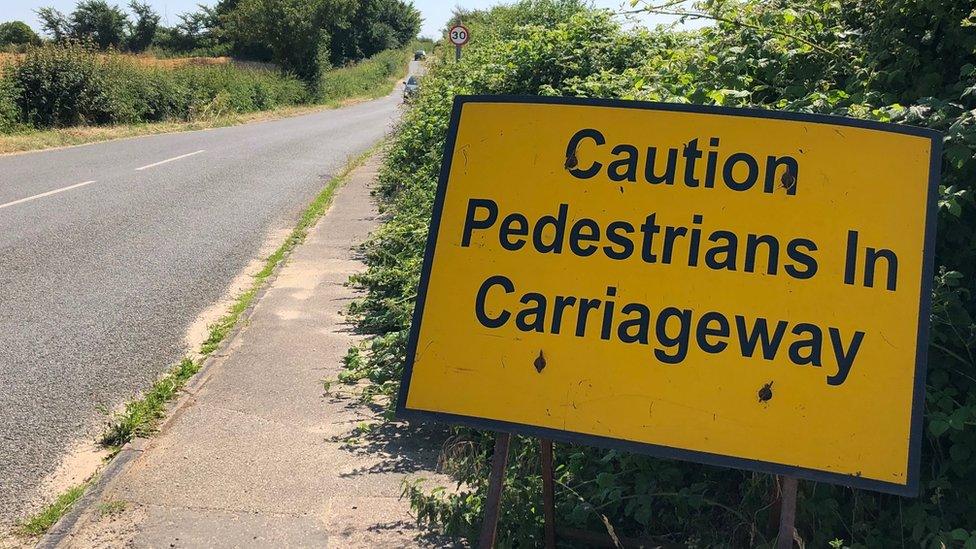
A sign was put in place in the village to warn drivers that pedestrians may be in the road
Parent Kathy Parrat felt it was too dangerous to walk her two boys and baby along the path and had switched to driving instead.
She said: "There needs to be a long-term fix because this happens every year but the hemlock is a lot worse this year."
A Suffolk County Council spokeswoman said: "The order cut back was raised on 23 June, but due to the requirement of a road closure, Monday 10 July was the earliest opportunity this work could take place.
"Suffolk Highways does not carry out routine weed treatment to Hemlock, where identified, as it is not listed as an invasive, non-native weed under the Weeds Act 1959."

Hemlock facts
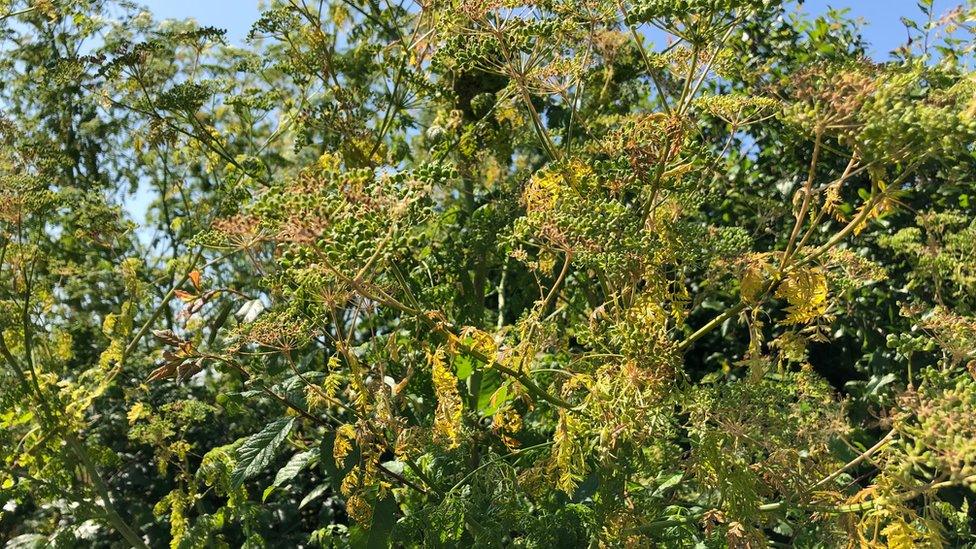
Hemlock can be fatal if ingested by humans
Produces umbrella-like clusters of white flowers in June and July.
Can be found in damp places, such as ditches, riverbanks and waste ground.
Grows up to 2m in height (6.5ft),
Its foliage purple-spotted stems have a distinctive and unpleasant, mousy smell
Mostly found in England and Wales, Scarcer in Scotland and Northern Ireland.
The toxins in hemlock are alkaloids, which can cause muscular paralysis.
Only a tiny amount of Hemlock can prove fatal to a human or to livestock.

Follow East of England news on Facebook, external, Instagram, external and Twitter, external. Got a story? Email eastofenglandnews@bbc.co.uk, external or WhatsApp 0800 169 1830
Related topics
- Published26 May 2023
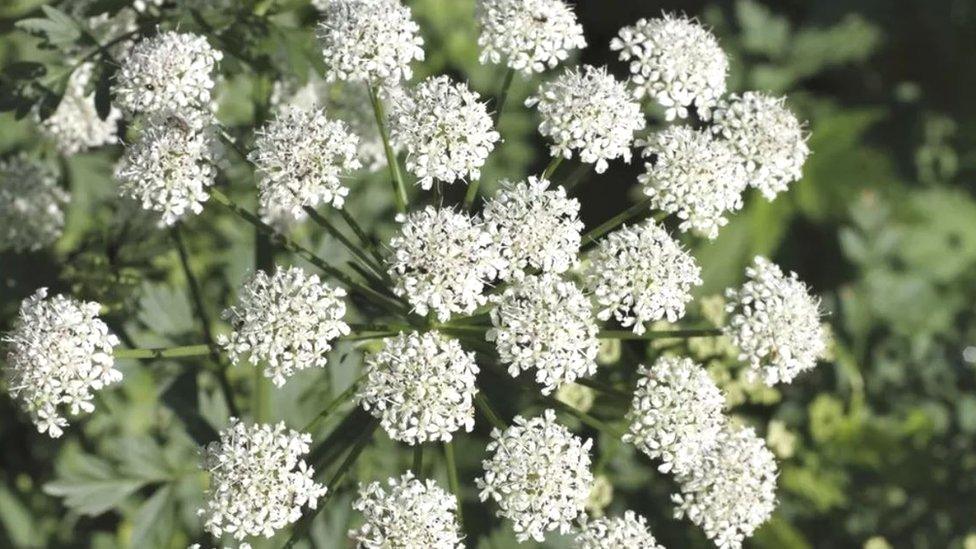
- Published20 April 2023

- Published3 November 2021
